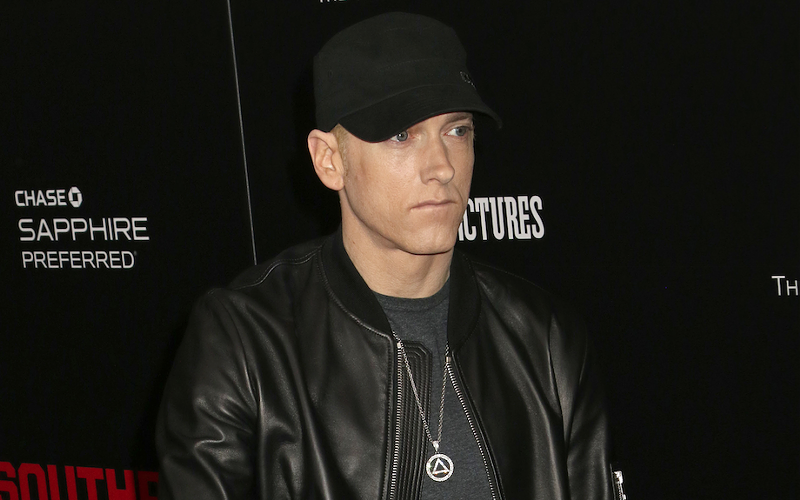Lawsuit by Eminem's publisher against Spotify could be a case for the Supreme Court

Audio By Carbonatix
[
{
"name": "GPT - Leaderboard - Inline - Content",
"component": "35519556",
"insertPoint": "5th",
"startingPoint": "3",
"requiredCountToDisplay": "3",
"maxInsertions": 100,
"adList": [
{
"adPreset": "LeaderboardInline"
}
]
}
]

JStone / Shutterstock
Eminem.
Eminem’s music publisher Eight Mile Style filed a copyright infringement lawsuit against Spotify on Wednesday, Aug. 21.
The complaint, filed in a Nashville federal court and obtained by The Hollywood Reporter, alleges that Spotify did not secure the necessary license before streaming Eminem’s songs billions of times. The lawsuit also alleges that the Music Modernization Act (MMA), popular legislation passed last year with support from multiple sides of the music industry, violates the U.S. Constitution. As such, the case could be headed to the U.S. Supreme Court.
The lawsuit scrutinizes the legality of the MMA because it protects streaming services like Spotify — a $26 billion Stockholm-based streaming company — from the liability of copyright claims. It does this by making it difficult to sue streaming services for “statutory damages,” which are damages established by a statute that can be awarded “per work."
Due to this limitation, the complaint contends that the MMA violates two aspects of the Fifth Amendment: the Due Process Clause and the Takings Clause. The Due Process Clause guarantees a right to fair treatment by the court system, and the Takings Clause makes it illegal to take private property for public use without acquiring permission to do so.
“If it can happen to Eminem, it can happen to a smaller artist,” intellectual property attorney John Krieger told Pitchfork.
The lawsuit also alleges that Spotify categorized Eminem’s songs under “Copyright Control,” a designation which indicates that the copyright is unknown. Seeing as how this is Eminem we’re talking about, the lawsuit states that this designation is “absurd” because it would not be difficult to identify the owner of such popular songs as "Lose Yourself."
The complaint goes on to assert that Spotify sent “random payments” for the streaming of songs, including “Lose Yourself” and “The Real Slim Shady,” which “only purport to account for a fraction of those streams,” according to the suit.
The publishing company that filed the lawsuit co-owns the songs in question and handles copyrights, and the lawsuit discusses compositions specifically, aka the sheet music and lyrics — not the master recordings. Eminem himself is not directly involved in the suit.
Stay on top of Detroit news and views. Sign up for our weekly issue newsletter delivered each Wednesday.





